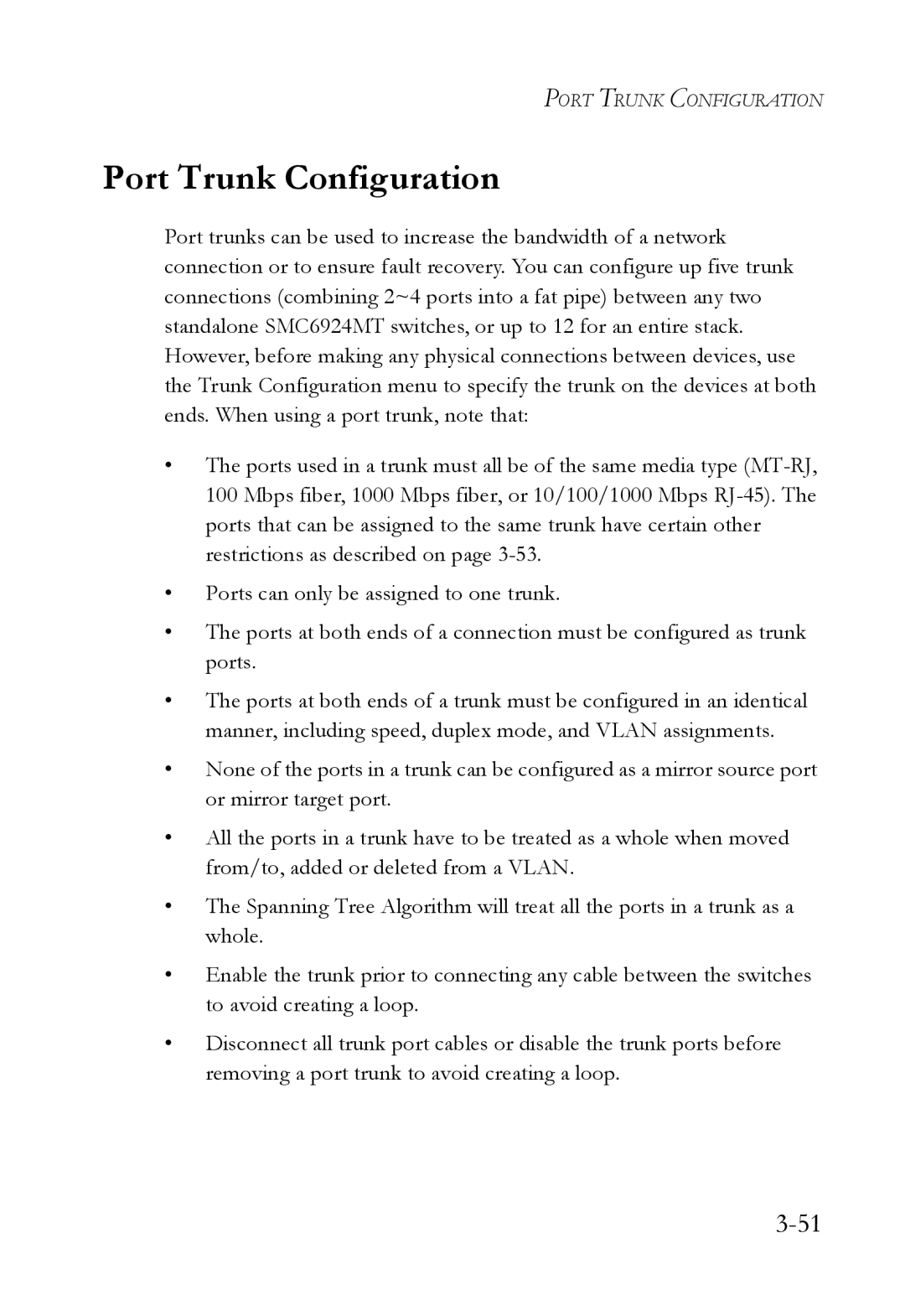PORT TRUNK CONFIGURATION
Port Trunk Configuration
Port trunks can be used to increase the bandwidth of a network connection or to ensure fault recovery. You can configure up five trunk connections (combining 2~4 ports into a fat pipe) between any two standalone SMC6924MT switches, or up to 12 for an entire stack. However, before making any physical connections between devices, use the Trunk Configuration menu to specify the trunk on the devices at both ends. When using a port trunk, note that:
•The ports used in a trunk must all be of the same media type
•Ports can only be assigned to one trunk.
•The ports at both ends of a connection must be configured as trunk ports.
•The ports at both ends of a trunk must be configured in an identical manner, including speed, duplex mode, and VLAN assignments.
•None of the ports in a trunk can be configured as a mirror source port or mirror target port.
•All the ports in a trunk have to be treated as a whole when moved from/to, added or deleted from a VLAN.
•The Spanning Tree Algorithm will treat all the ports in a trunk as a whole.
•Enable the trunk prior to connecting any cable between the switches to avoid creating a loop.
•Disconnect all trunk port cables or disable the trunk ports before removing a port trunk to avoid creating a loop.
